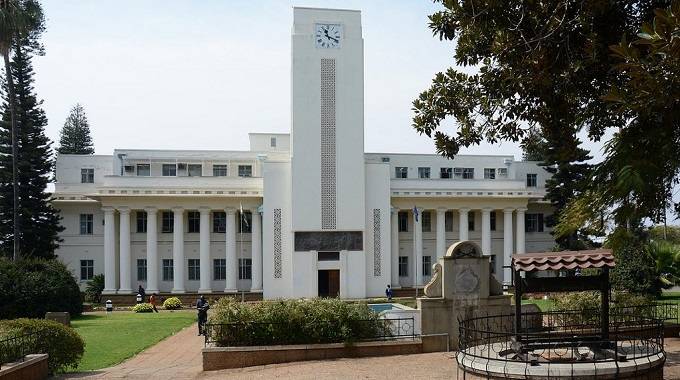The Bulawayo City Council (BCC) is likely to suspend its water-shedding programme in March owing to improved capacity at the city’s supply dams to due good rains received in the country.
In a statement, following a special council meeting held on Friday, Bulawayo mayor Councillor Solomon Mguni said the since the beginning of the rain season, the dam capacity has increased by 30 percent to 53 percent capacity.
The local authority has also come up with a water supply restoration strategy which will guide the easing of the stringent water shedding regime culminating in its suspension in Mid-March.
Currently, a 144 hour water shedding programme is in place.
“Council met and resolved for the progressive rolling out of the water restoration strategy against the available pumping capacities so as to slowly introduce a programmable water shedding which will be gradually suspended towards mid-March 2021,” Cllr Mguni said.
“It will be recalled that last year the city council installed new Flowserve pumps pumps to replace the obselete KSB Pumps at both Fernhil and Ncema Pump Stations. The pumps were initially earmarked for technical commissioning in December 2020, but due to challenges faced with the failure of the Non-Return Valves, the commissioning was rescheduled for January 2021.
“The additional pumping through the Flowserve pumps is expected to increase the treatment capacity from the current 92ML/day to 145ML/day. This will assist in building the raw water reservoir and ensure its gradual restoration to the water supply system. The City had thus proposed a formal 144 hour water shedding programme which will be gradually normalised to ensure water twice a week.”
Cllr Mguni said by the third week of February the council anticipates that the 72-hour-shedding schedule would have been effected.
In March, the water shedding will be reduced to 48 hours and if the coming in on board of the secodn set of the Flowserve pumps.
“The 48 hour shedding programme will be suspended by end of March making way for a fully charged system to supply water to the city 24 hours per day. This is dependent on the consumer adhering to the water rationing system,” the mayor said.
The mayor added that to ensure continuous water supply in the city, there shall be immediate finalisation of rehabilitation of the second Sulzer Pump to ensure standby capacity.
“We also intend to effect the completion and commissioning of the Epping Forest which is anticipated to supply an additional water supply of ten megalitres per day. We will ensure adherence to the rationing regime currently in place,” he said.
“There shall be the implementation of the Inyankuni Booster Station increasing output from 18 megalitres per day to 41 megalitres per day at a cost of US$0.4million. Mtshabezi abstraction will be increased from 15 megalitres to 36 megalitres at a cost US$2.3million.”

